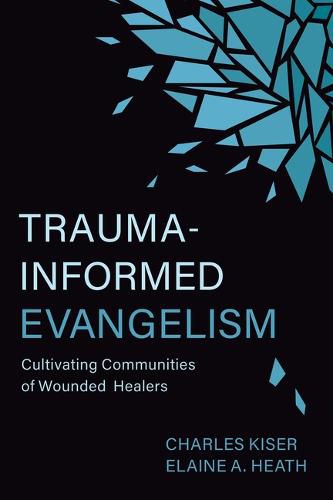Readings Newsletter
Become a Readings Member to make your shopping experience even easier.
Sign in or sign up for free!
You’re not far away from qualifying for FREE standard shipping within Australia
You’ve qualified for FREE standard shipping within Australia
The cart is loading…






We are at the forefront of a new reformation.
So declares Elaine Heath in Trauma-Informed Evangelism, aiming to recover the God of love from the structures of hate that pervade Christian communities in America today. In their new guide, she and Charles Kiser work toward bringing this reformation to fruition through ministering specifically to the spiritually traumatized.
Over the course of their study, Kiser and Heath amplify the voices of those who suffered misogynistic, racist, or homophobic abuse at the hands of the church. While carefully listening to these stories, Kiser and Heath bring them into conversation with the passion and resurrection of Jesus. Engaging with womanist and liberation theology, they see in the crucifixion a God who does not valorize suffering but shares the experience of the traumatized. Ultimately, this theodicy leads them to propose a new evangelism–one based not on fear and coercion but on witnessing the unconditional love of God.
Timely, theologically informed, and eminently practical, Trauma-Informed Evangelism will serve as a formative guide for church leaders and students seeking to aid trauma survivors in their communities. Discussion questions conclude each chapter.
$9.00 standard shipping within Australia
FREE standard shipping within Australia for orders over $100.00
Express & International shipping calculated at checkout
We are at the forefront of a new reformation.
So declares Elaine Heath in Trauma-Informed Evangelism, aiming to recover the God of love from the structures of hate that pervade Christian communities in America today. In their new guide, she and Charles Kiser work toward bringing this reformation to fruition through ministering specifically to the spiritually traumatized.
Over the course of their study, Kiser and Heath amplify the voices of those who suffered misogynistic, racist, or homophobic abuse at the hands of the church. While carefully listening to these stories, Kiser and Heath bring them into conversation with the passion and resurrection of Jesus. Engaging with womanist and liberation theology, they see in the crucifixion a God who does not valorize suffering but shares the experience of the traumatized. Ultimately, this theodicy leads them to propose a new evangelism–one based not on fear and coercion but on witnessing the unconditional love of God.
Timely, theologically informed, and eminently practical, Trauma-Informed Evangelism will serve as a formative guide for church leaders and students seeking to aid trauma survivors in their communities. Discussion questions conclude each chapter.